The CEO of Apple's supplier Broadcom has suggested that Apple may have pushed back the next iPhone's launch rather than the new handsets arriving in the usual September timeframe.
Broadcom chief suggests that iPhone 12 may see delayed launch
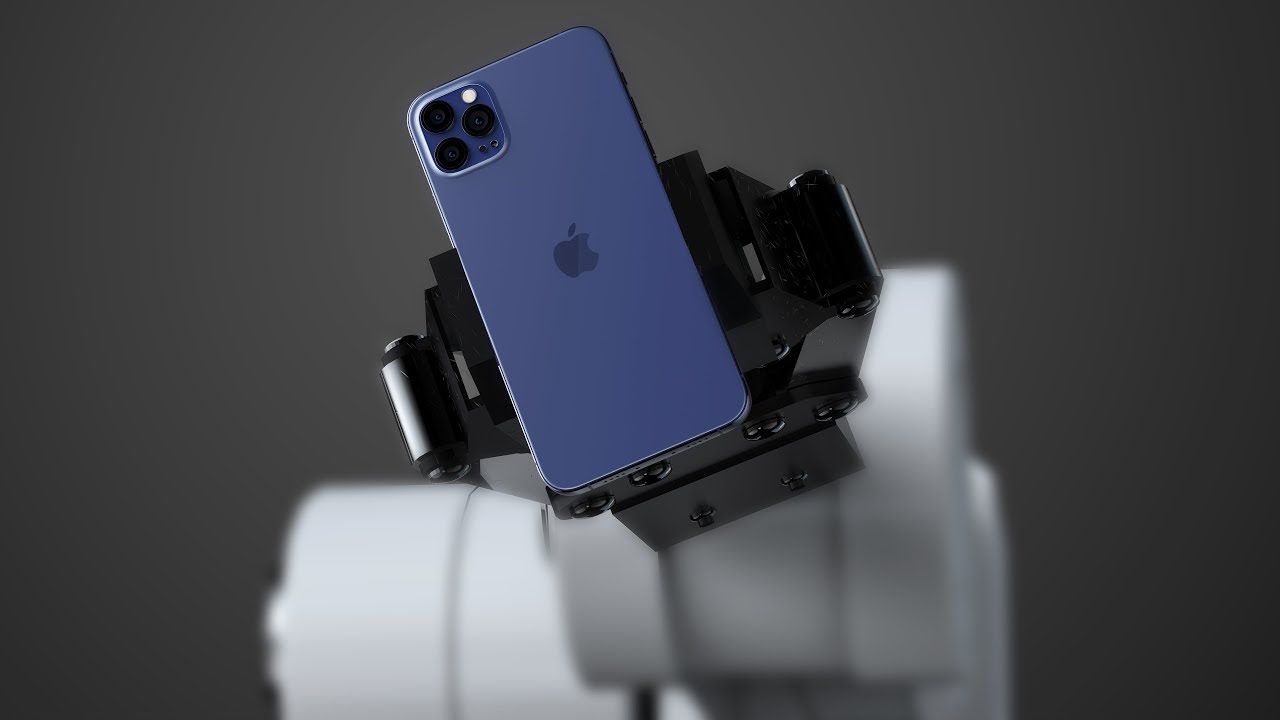

The CEO of Apple's supplier Broadcom has suggested that Apple may have pushed back the next iPhone's launch rather than the new handsets arriving in the usual September timeframe.
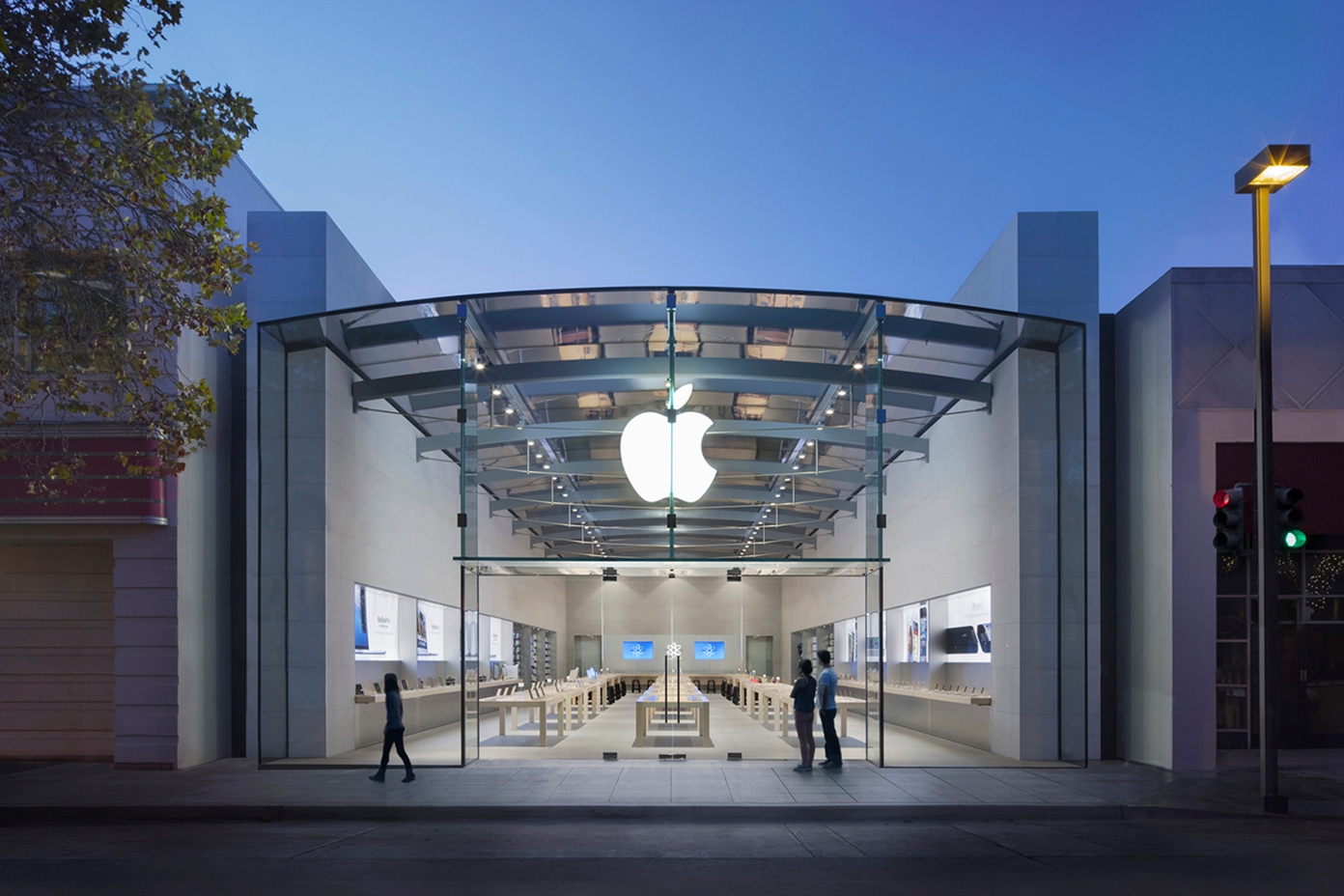
In a lawsuit dating back several years, Apple has now been ordered to fork over millions of dollars.
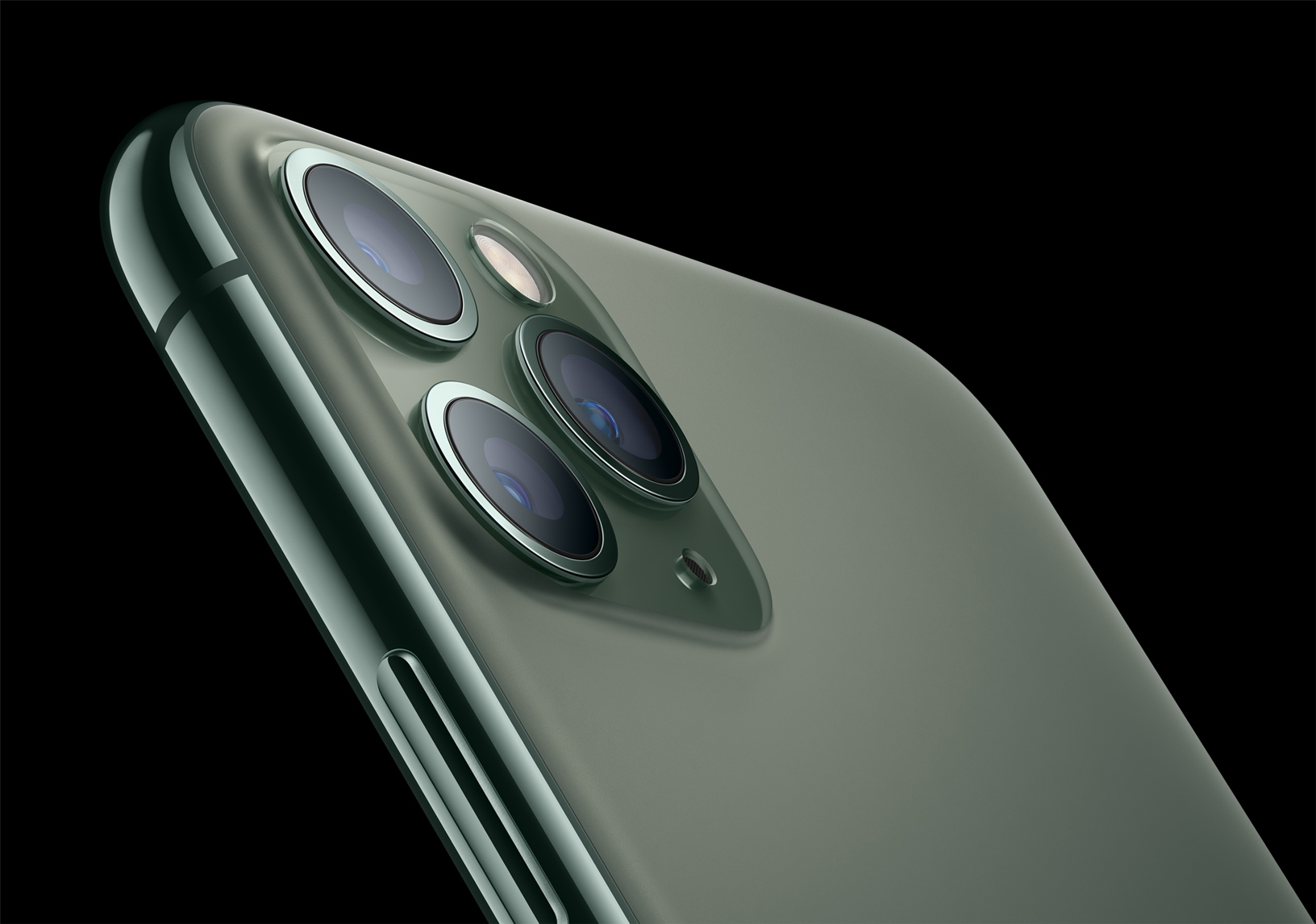
Chip maker Broadcom has stricken a high-performance component deal with Apple worth fifteen billion dollars, Bloomberg learned Friday.
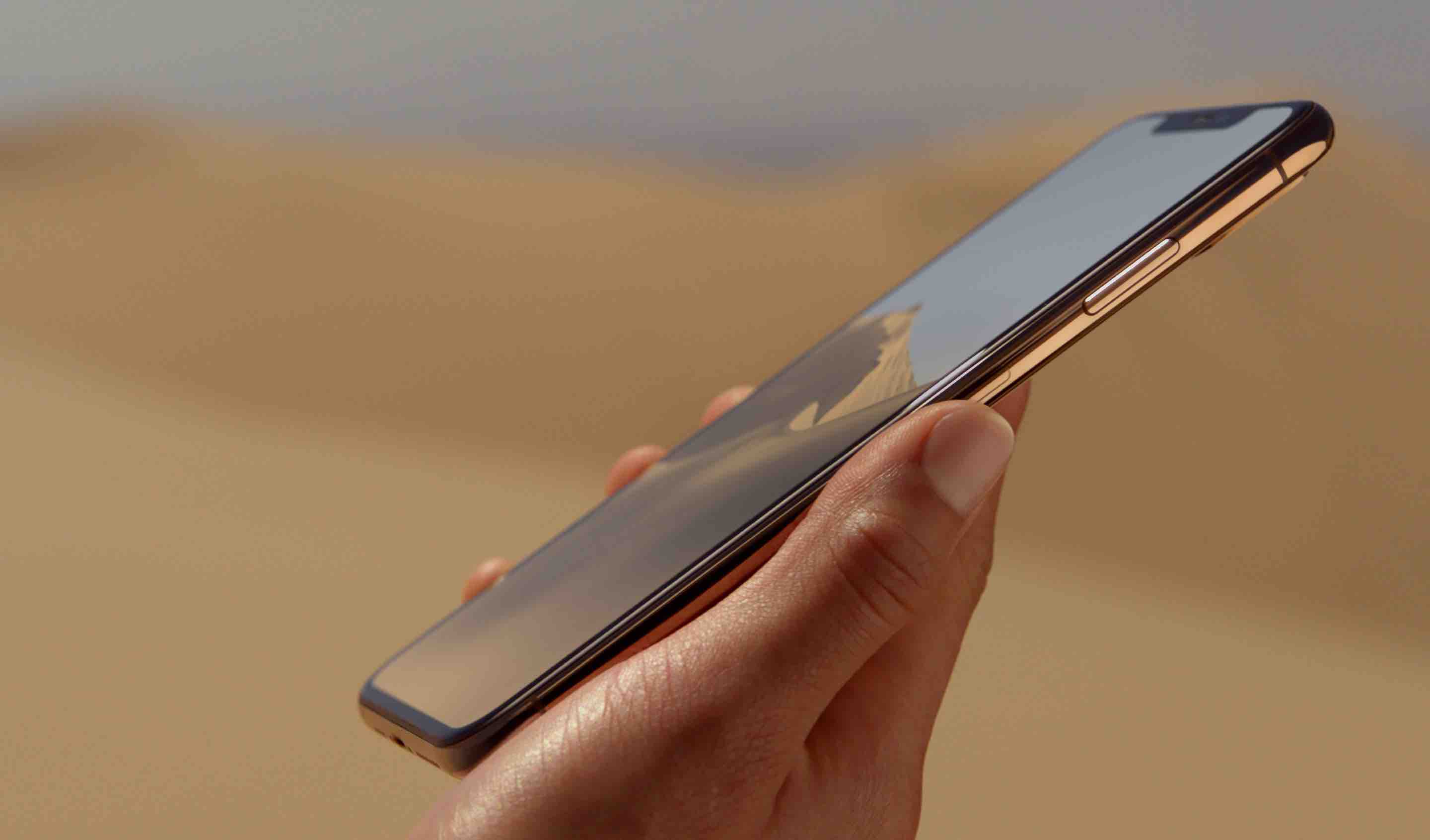
Broadcom today announced a renewal of its supply deal with Apple for another two years.
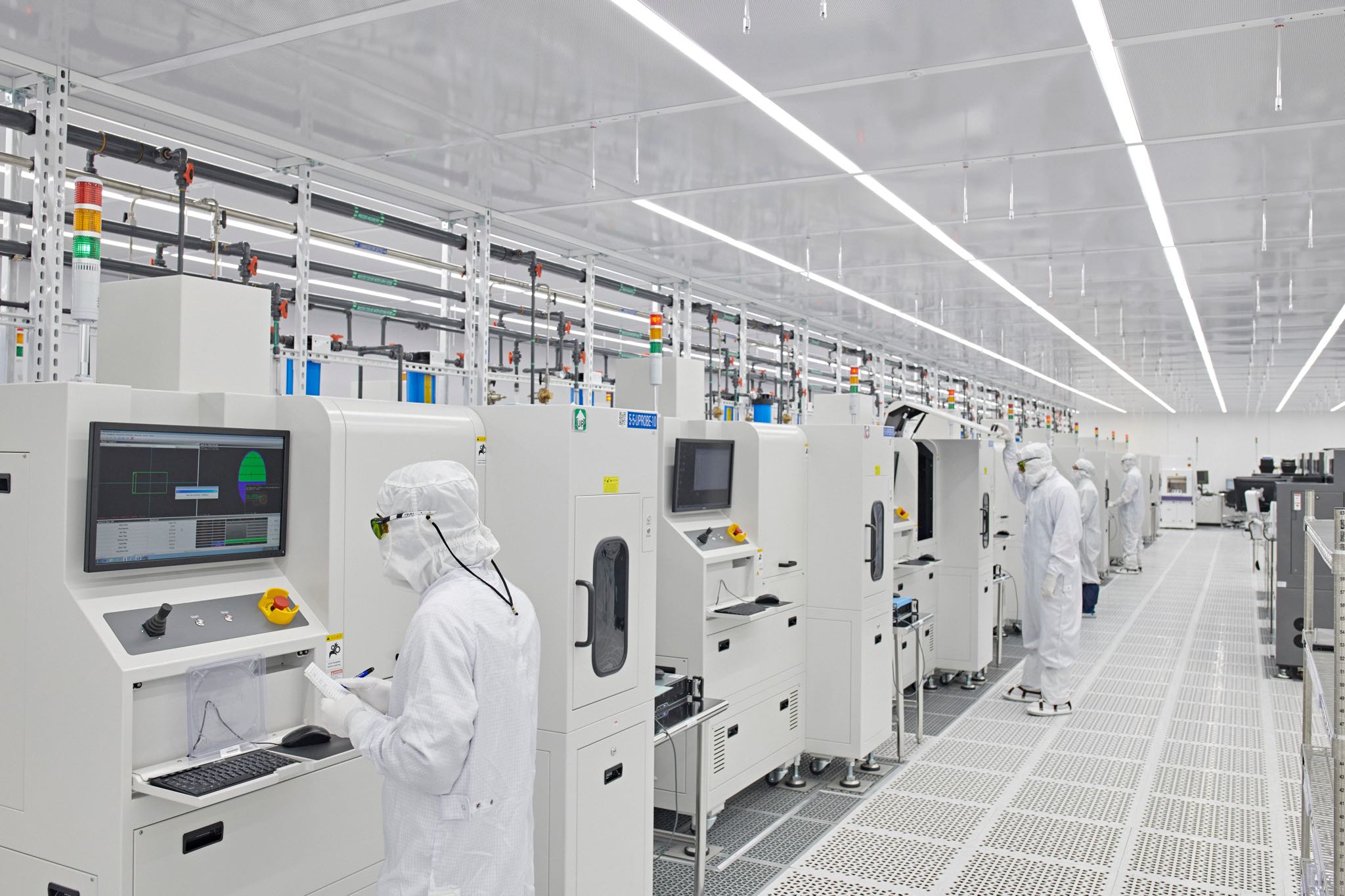
Coinciding with today's report in The New York Times detailing why Apple won’t be bringing manufacturing jobs back home, the Cupertino technology giant has now issued a press release focused on US suppliers Finisar, Corning and Broadcom which are building parts for its products at domestic manufacturing plants.
The gist of the report: the iPhone maker in 2018 alone spent a whopping $90 billion with 9,000 America component suppliers and companies such as Finisar, Corning and Broadcom.
The figure translates into an increase of more than ten percent from the year before, supporting more than 450,000 jobs, according to the press release.
Finisar, which supplies laser components for the TrueDepth camera, was awarded $390 million from Apple’s $1 billion Advanced Manufacturing Fund last year to expand production. The supplier used that money to turn an unoccupied building in Sherman, Texas into a "bustling operation" full of people who will supply that future business.
Finisar's technician handles a VCSEL wafer during production.The facility will eventually employ up to 500 engineers who will be mass-producing vertical-cavity surface-emitting lasers (VCSELs) for modern iPhones.
VCSEL wafers are nearly as thin as a human hair and contain hundreds of layers measuring only a few atoms in thickness. They require a highly advanced and precise manufacturing operation, as well as skilled technicians with specialized training.
Corning's 65-year-old facility in Harrodsburg, Kentucky produces iPhone cover glass. It received a $200 million investment from Apple for state-of-the-art glass processing.
Army veteran Michael Turner, 40, Michael Turner gets ready to enter the production floor at the Sherman plant.Apple works with many other US suppliers, like Cincinnati Test Systems and Broadcom.
Cincinnati Test Systems in Ohio designed a first-of-its-kind equipment to ensure iPhone is water resistant. And Broadcom in Fort Collins, Colorado, Qorvo in Hillsboro, Oregon and Skyworks in Woburn, Massachusetts, are all making wireless communication hardware that enables global connectivity.
Since 2011, the total number of jobs created and supported by Apple in the US has more than tripled, from almost 600,000 to 2 million across all 50 states.
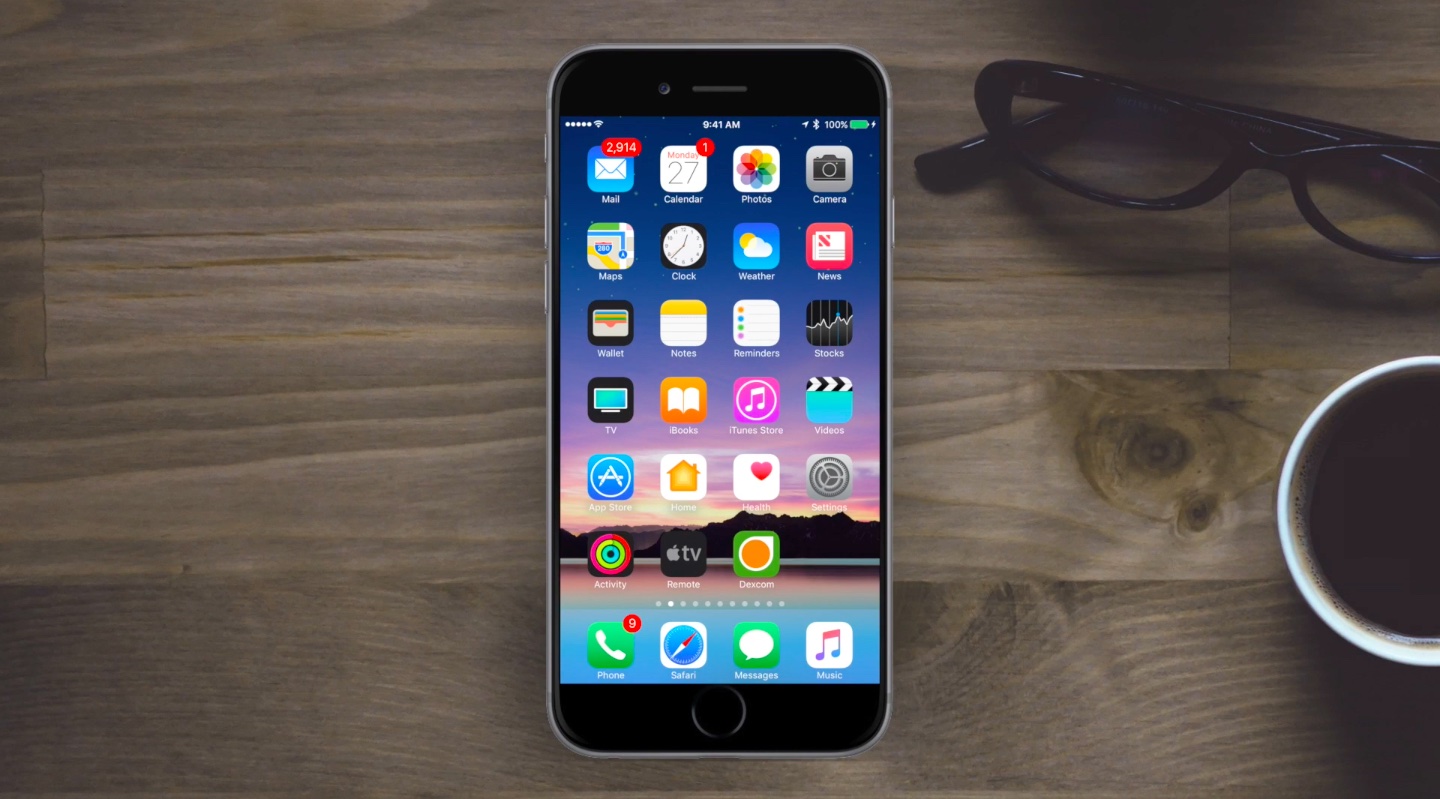
The iOS 10.3.3 software update for iPhone, iPad and iPod touch which Apple released on Wednesday has patched a serious exploit that targeted open Wi-Fi signals.
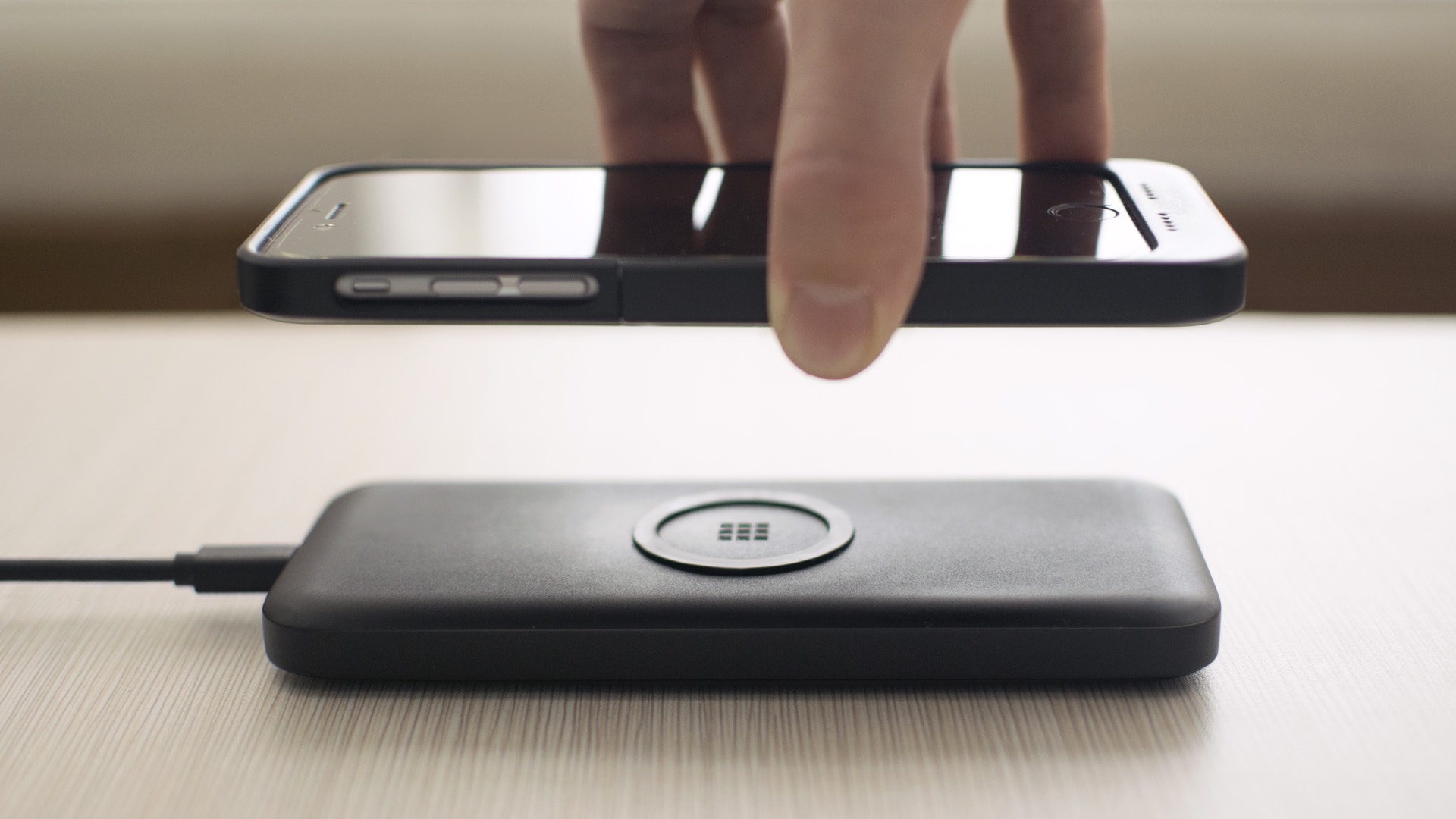
JPMorgan said in yesterday's note to clients ahead of Apple's earnings report that iPhone 8 would implement support for the latest Bluetooth 5.0 standard and wireless charging via a Broadcom chip. Broadcom's chips support both PMA and Qi wireless charging standards, but it's unclear if iPhone 8 might use either of them or rely on Apple's custom version of these standards.
At any rate, Apple's business could add between $500 million and $600 million to Broadcom's annualized revenues, JPMorgan predicted. Though the note doesn't say which new iPhone models will pack wireless charging, KGI Securities analyst Ming-Chi Kuo said before that all 2017 iPhones would offer this feature.
Galaxy S8 is the world's first phone with support for the new Bluetooth 5.0 standard, which promises to double the speed and quadruple the range. Bluetooth 5.0 also allows multiple devices to be used at the same time, meaning iPhone 8 could allow two users to watch a movie on the device with two sets of Bluetooth headphones.
Bluetooth 5.0 was certified by Bluetooth Special Interest Group back in June 2016. Apple is a promoting member of the organization with voting rights.
In February of this year, Apple joined Wireless Power Consortium, potentially giving some credence to rumors about wireless charging in iPhone 8. The Cupertino company is listed as a member on the organization's website.
There are currently 213 members of the consortium.
In 2016 year, 152 different brands registered a Qi-compliant product on the official Wireless Power Consortium website, up from 86 in 2015. The Qi protocol is currently used by more than 200 companies and is in 1343 products you can buy now. Apple Watch uses a bespoke version of the Qi wireless charging standard that’s incompatible with existing Qi chargers.
JPMorgan said this morning that there's a “high likelihood” that Apple will pre-announce and preview iPhone 8 at WWDC next month, ahead of its launch in the fall. But if you ask another investment firm—Deutsche Bank—no new iPhone 8 will arrive this year.
“Several supply chain reports have suggested that key component shortages and technical challenges could delay the release of a high-end iPhone 8 device this fall,” reads Deutsche Bank's report. “We believe this report further underscores the uncertainty around the timing of Apple's next-generation iPhone model”.
Photo: ON Charge magnetic wireless charging solution for current iPhones
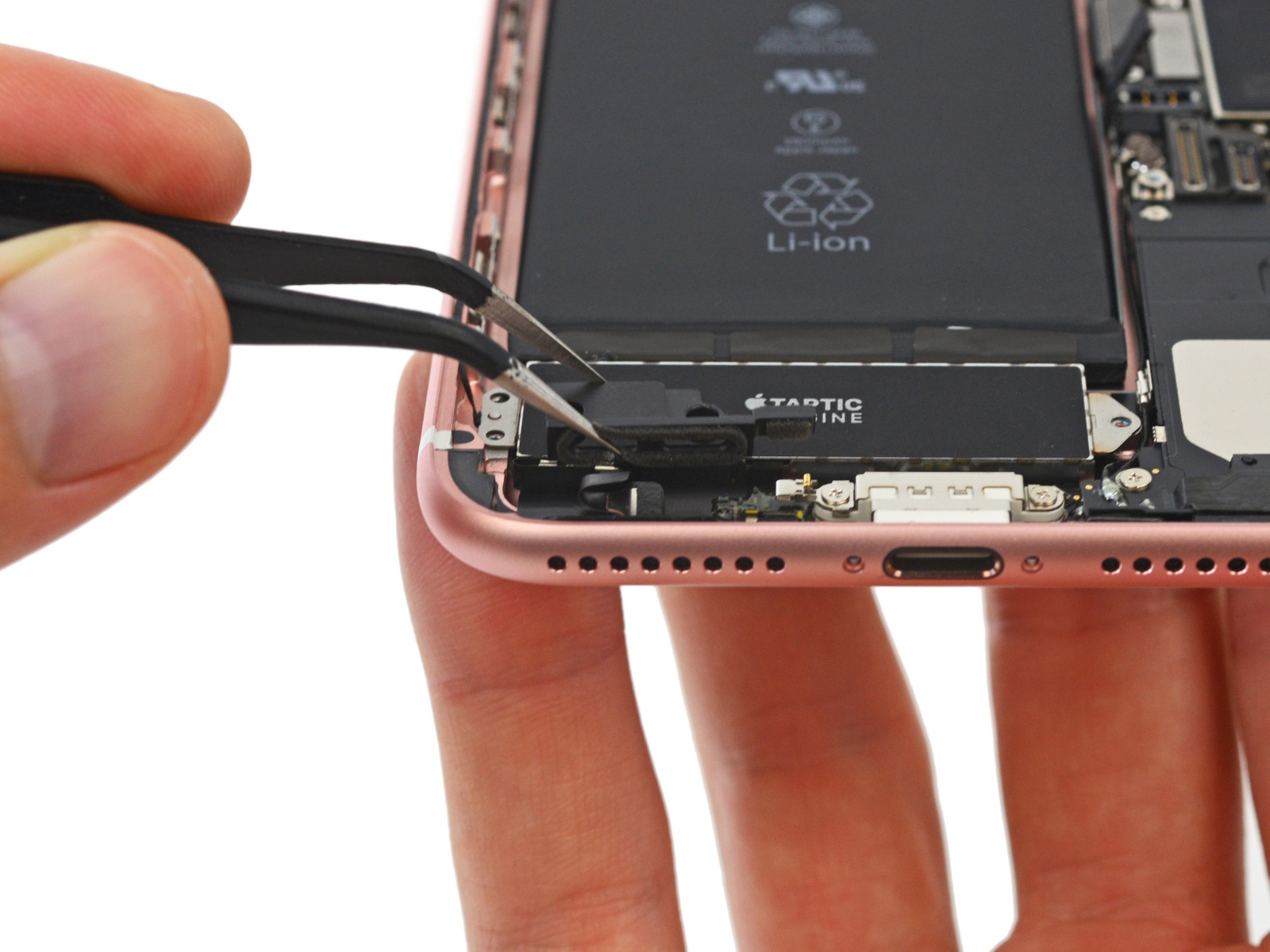
In the coming weeks, Toshiba will unveil a final decision concerning selling a majority stake in its lucrative memory business. Bloomberg reported this morning that iPhone manufacturer Foxconn's preliminary bid for Toshiba's semiconductor unit is valued at a whopping $26.93 billion. According to Bloomberg's sources, that amount is in part to force negotiations, using a bid that's too high to ignore.
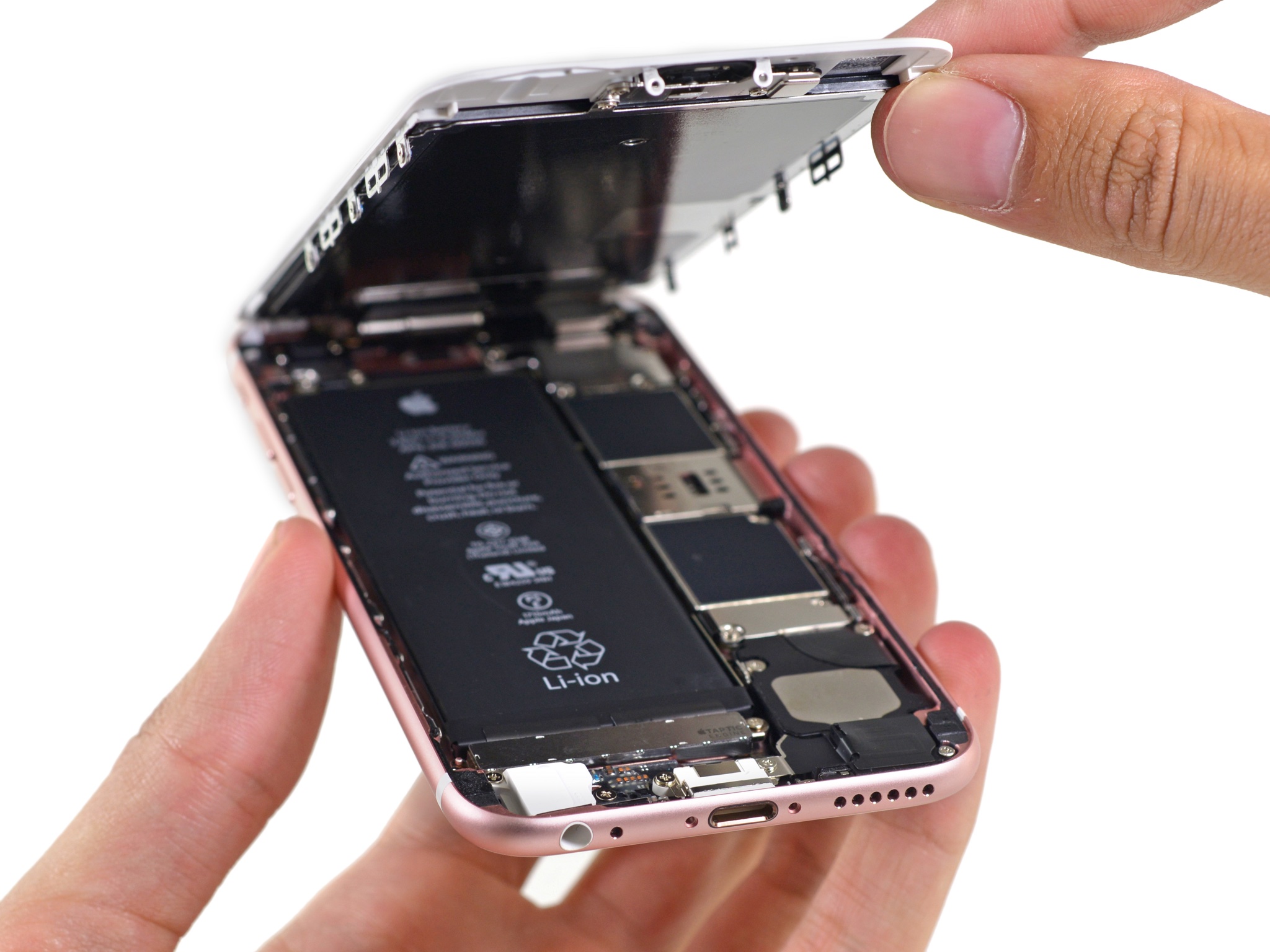
Fabless semiconductor company Broadcom is looking to phase-out its Wi-Fi chip-making business, according to industry sources who spoke with Taiwanese trade publication DigiTimes. Broadcom is currently Apple's top supplier of Wi-Fi chips used in Macs, iPhones, iPads and iPods so it looks like the Cupertino firm might be forced to find a new supplier soon.
Broadcom designs its own products but contracts out actual silicon production to Taiwan Semiconductor Manufacturing Company Limited (TSMC), which also builds Apple-designed application processors for iOS devices.
Chip maker Broadcom, which supplies Wi-Fi and Bluetooth chips for Apple products, on Tuesday announced a software development kit that supports HomeKit, Apple’s home automation platform supported across iPhone, iPod touch and iPad devices running iOS 8.
The announcement is the strongest indication yet that Apple has granted full HomeKit certification to Broadcom's hardware developer platform. It ensures that upcoming Internet of Things (IoT) home automation devices will be able to seamlessly connect with the iPhone, iPad and iPod Touch.
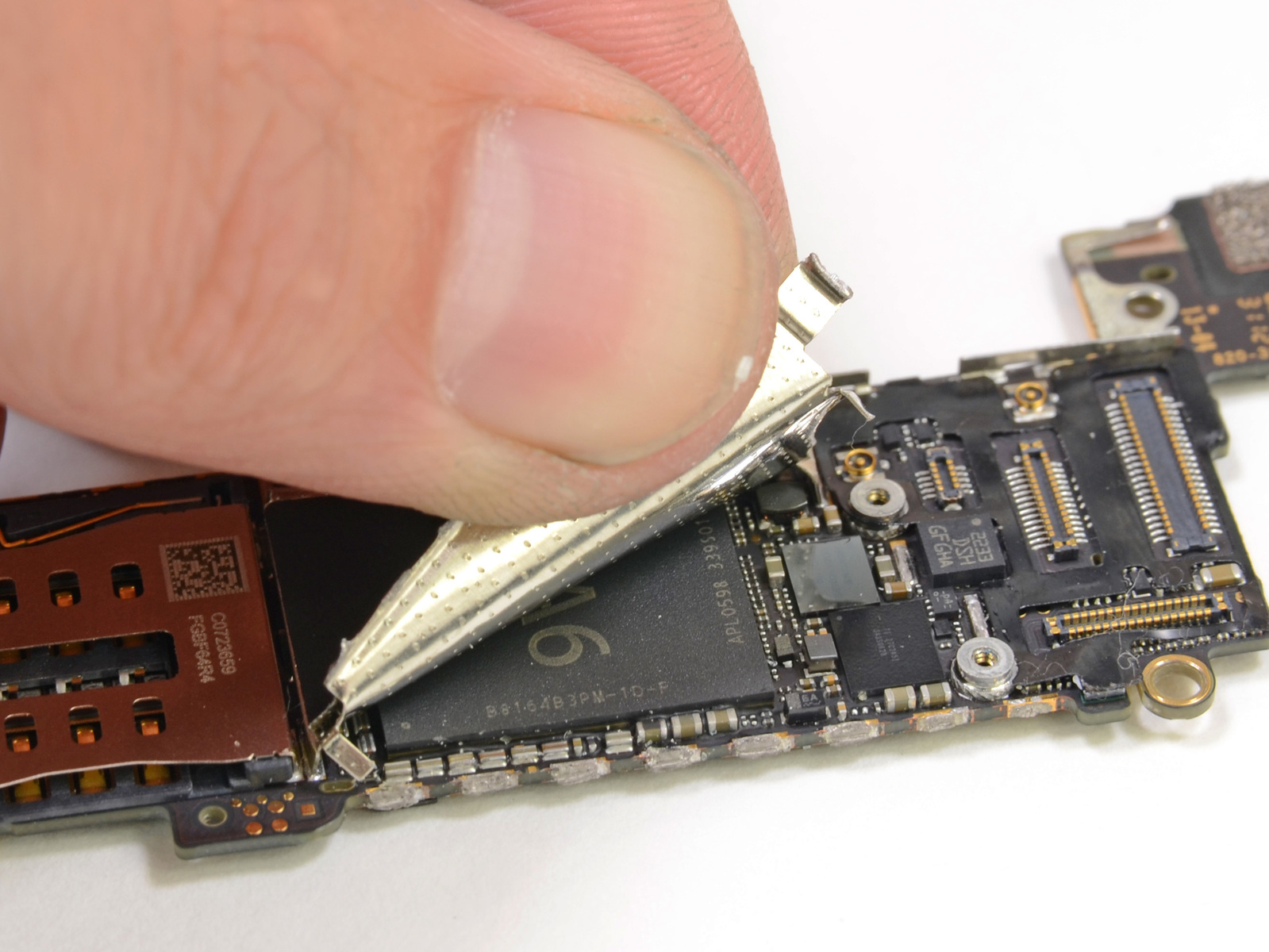
Following talk of Apple's rumored initiative that would have it develop its own baseband chips for 2015 iPhones and iPads in-house, AppleInsider has learned the firm's recently poached a pair of longtime semiconductor engineers from chipmaker Broadcom.
Both men are experienced at building RF hardware and have led the effort to produce baseband transceivers used by Nokia and Samsung devices.
Apple counts Broadcom as its supplier: the iPhone 5s uses a Broadcom touchscreen controller and the handset's Wi-Fi chip by Murata is based on Broadcom's BCM4334 module, according to a teardown analysis by repair experts over at iFixIt...
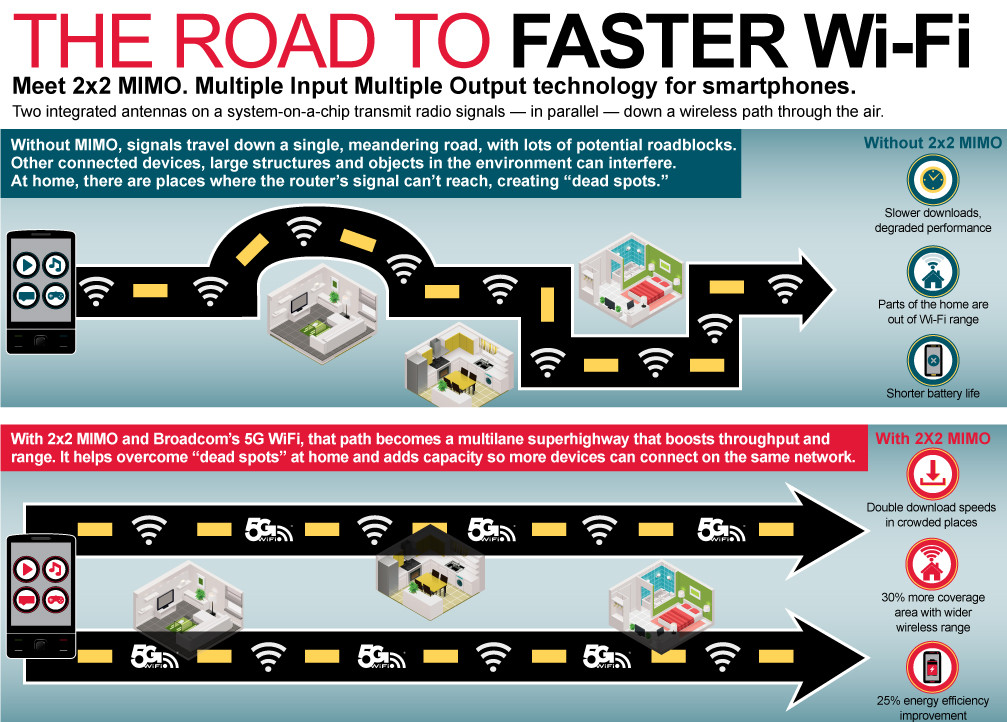
Imagination Technologies, the fabless British semiconductor maker, yesterday at Mobile World Congress detailed its new PowerVR graphics which outperforms Nvidia's Tegra K1 platform and is a likely candidate for the next iPhone's GPU. And now, another premium silicon vendor has announced a chip that could just as easily find its way into future iOS devices.
I'm talking about Broadcom, whose Wi-Fi chips and other controller components are used in the iPhone 5s and iPad lineup. The Irvine, California based firm announced at Mobile World Congress a new fifth-generation 802.11ac Wi-Fi component which doubles data throughput and increases Wi-Fi coverage by up to 30 percent.
Should Apple choose to tap it, the iPhone 6 and the next iPad will adopt Gigabit Wi-Fi aka 802.11ac, the latest and greatest standard in wireless networking for the consumer market...